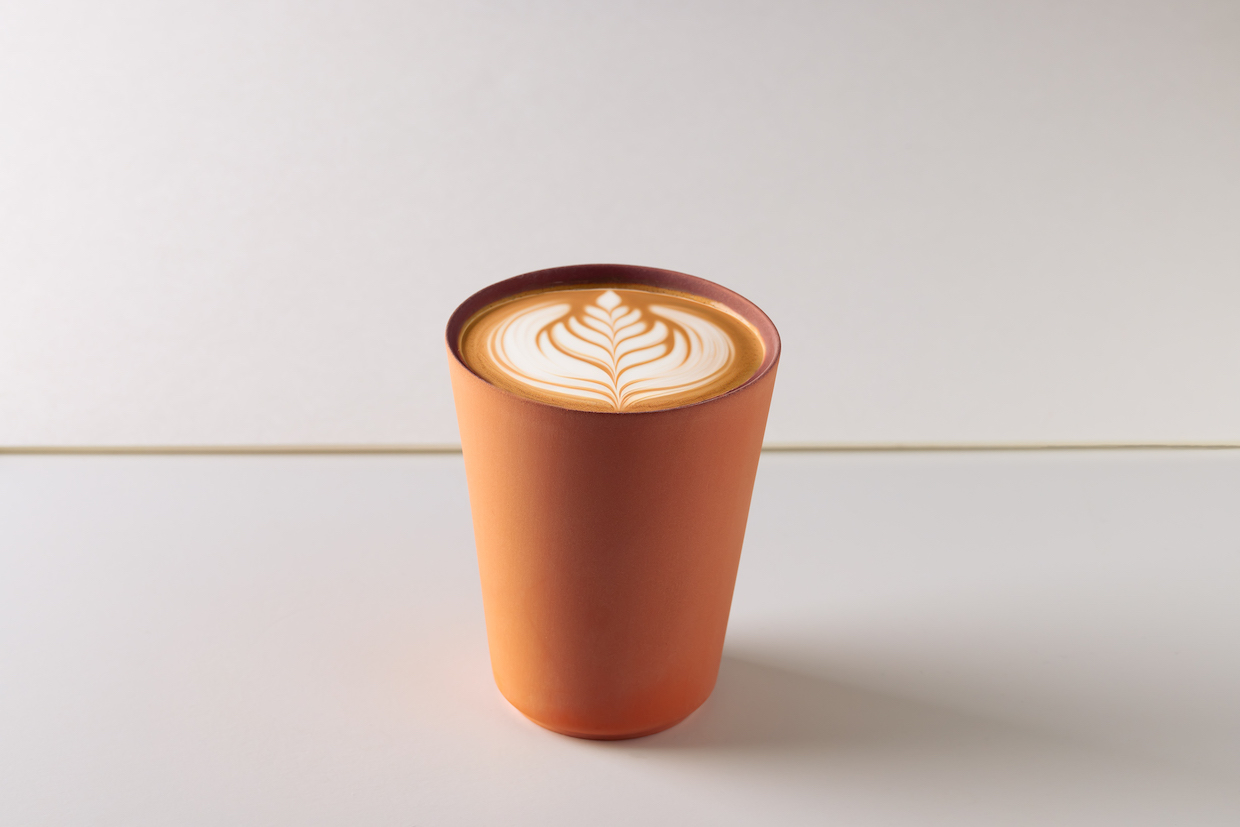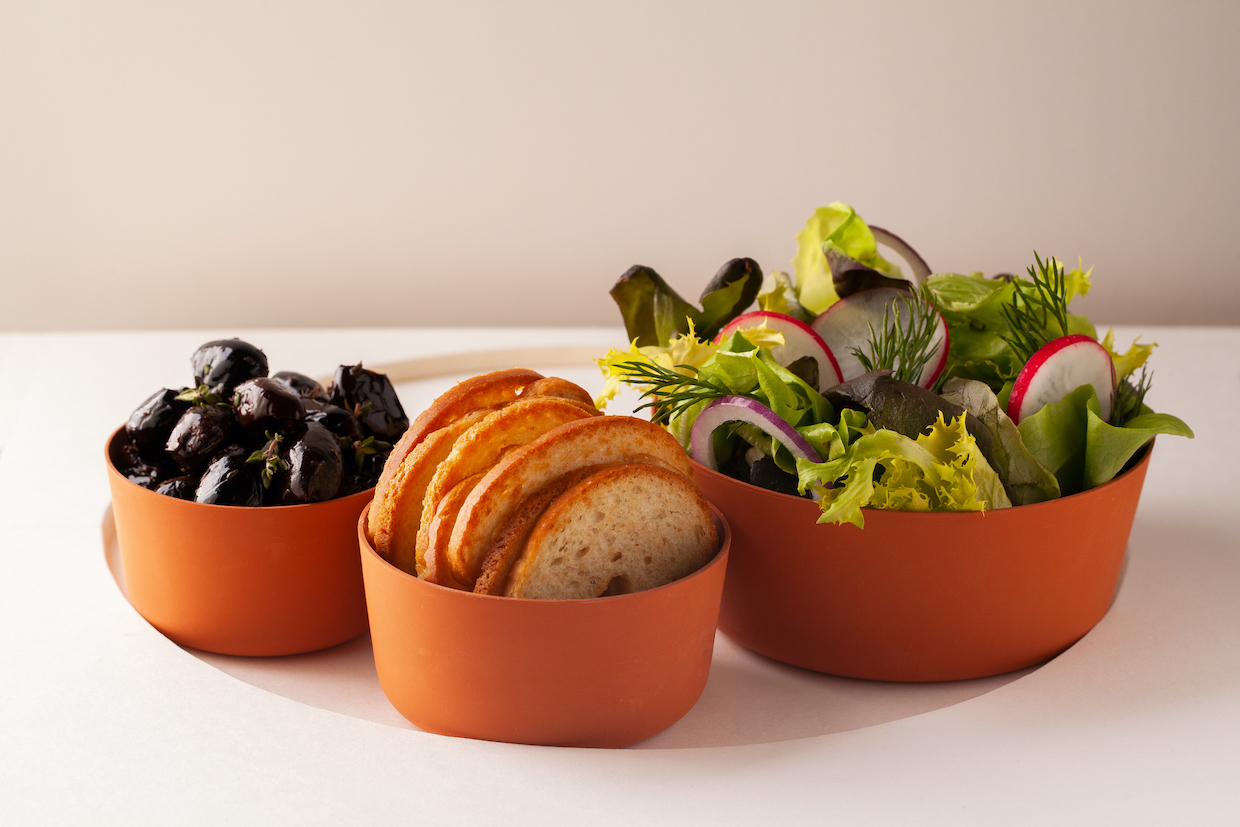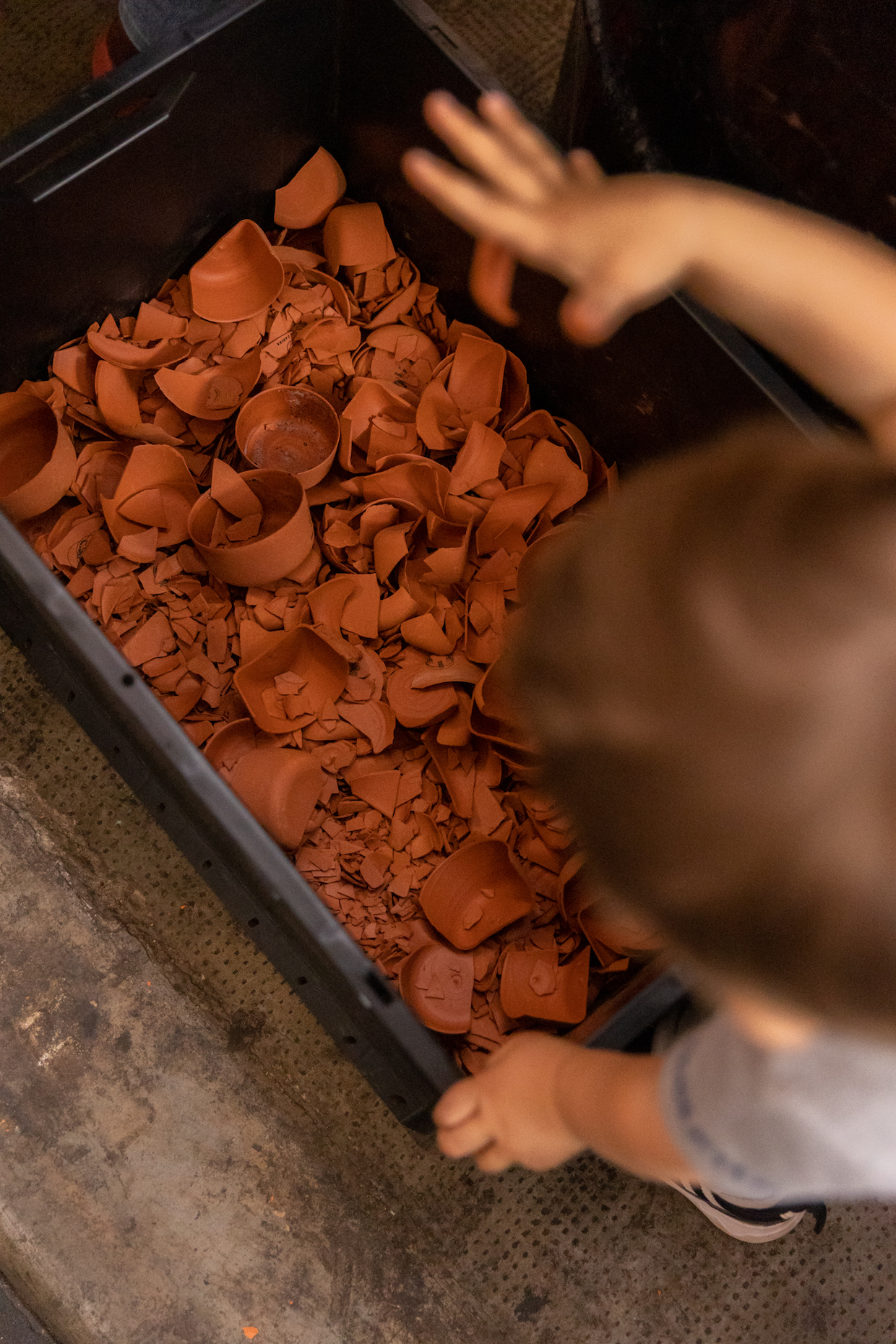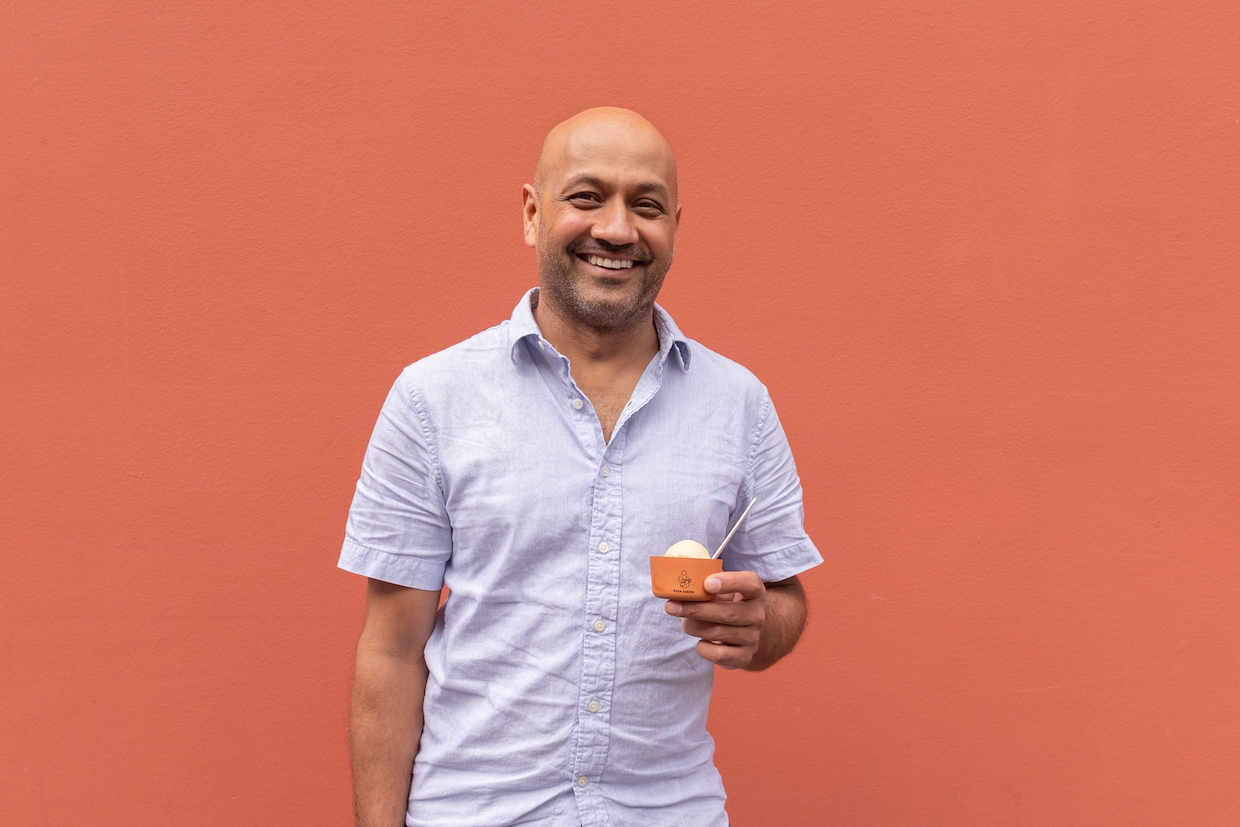A San Francisco startup called GaeaStar has introduced 3D-printed terracotta cups, bowls and plates in commercial coffee settings as alternatives to single-use plastic products.
GaeaStar raised $6.5 million in seed funding from numerous firms this past April, after generating sales interest in Germany and California.
Composed entirely of clay, water and salt, the GaeaStar clay materials are designed to crumble into dust when forcibly crushed, reintegrating into soil anywhere. The company describes the products, which can be washed and reused, as “geo-neutral,” meaning they do not interfere with the composting process.
“99% of current plastic and paper cups end up in the landfill. That’s published research,” Sanjeev Mankotia, the founder and CEO of GaeaStar, recently told Daily Coffee News. “We just don’t know what the long-term effects of plastic waste are, and we’re just starting to see that this is everywhere. We’ve found it in mothers’ breast milk; we’ve found it in our blood; it’s in animals; it’s in fish, and it’s a forever particle. I’d rather throw dirt back into a landfill than plastic.”
GaeaStar is currently generating cups in small batches for delivery to pilot partners. The company’s longer-term goal is to adapt its manufacturing equipment into appliances that customers can install and use in-house, while utilizing clay from local sources.
The company envisions a solution in which cups can be printed in under 10 seconds for less than 10 cents apiece, which would present a more practical alternative to existing pre-manufactured single-use cups.
“Our vision is that one day our machine, which is our North Star, sits in a coffee shop or a restaurant, and you’re able to print whatever vessel you want, whether it’s a plate or a cup, an espresso cup or bowl, on demand,” said Mankotia. “We’re certainly not there yet.”
For now, GaeaStar cups and bowls are produced at a single facility in Germany before use by catering companies and dozens of ice cream shops around Berlin. Cups are also now being delivered to prospective partners in the United States, including the company’s first official U.S. pilot partner, Santa Cruz, California-based Verve Coffee Roasters, which tested the cups at a popup event.
According to Mankotia, Gaeastar’s particular innovation is in recipe of materials and its additive manufacturing equipment that create cups that are of eggshell thinness while standing up to hot and cold liquids. The glazed terracotta interior is designed to maintain no odors or stains.
“It’s the fine china experience with the convenience of disposability,” said Mankotia. “If you could do this in a nice way, provide a better experience, and not harm the planet — why not?”
A trained mechanical engineer, Mankotia worked in the bicycle and automotive industries prior to transitioning to finance. He said the GaeaStar concept has been percolating in his mind for the past 15 years after originally being inspired by Indian street vendors who sell chai tea in clay cups called kulhads.
“Potters [in India] get the clay from river beds and carry it on top of their heads. They’ve been doing it for generations. Without any electricity they quickly make them into these crude shapes, then they sell them to the tea vendor. The tea vendor sells you the tea for maybe 25 cents, including the cup, and each of these families is making a margin to live off,” Mankotia said. “If they can do it, then why can’t we bring this concept, which is a really sustainable solution?”
Mankotia founded GaeaStar in San Francisco in 2021, and product development since then has been led by a Berlin-based team of engineers. Their to-do list currently includes formulating an espresso-sized cup, devising a spill-resistant lid solution and improving insulation for extra-hot drinks.
Does your coffee business have news to share? Let DCN’s editors know here.
Howard Bryman
Howard Bryman is the associate editor of Daily Coffee News by Roast Magazine. He is based in Portland, Oregon.












Comment